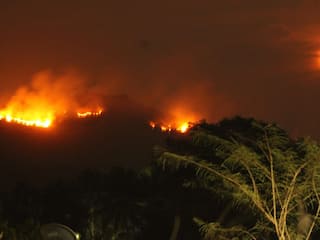Plea Challenging 'Clean Chit' To Aryan Khan In Drugs Case Withdrawn From Bombay HC
It is to be noted that law student Pritam Desai had challenged the “clean chit” given to Aryan Khan and filed a PIL.

New Delhi: A criminal Public Interest Litigation (PIL) challenging the ‘clean chit’ given to actor Shah Rukh Khan's son Aryan Khan in the cruise ship drug bust case was withdrawn from the Bombay High Court on Wednesday.
According to reports, acting Chief Justice SV Gangapurwala called it a "publicity litigation" and asked the petitioner to explain how the issue concerned him and how it was in public interest. It also warned that heavy costs would be imposed.
It is to be noted that law student Pritam Desai had challenged the “clean chit” given to Aryan Khan and filed a PIL.
His lawyer, advocate Subodh Pathak, contended that it was only the courts which had the power to grant clean chit to an accused and not the investigation agency.
“The SIT should have just placed the evidence on record and let the court decide,” the advocate had said.
However, the bench said that Aryan Khan was exonerated after a complete investigation and also as a law student, Desai should pursue more important causes, the bench said.
“The agency investigated, they did not have enough evidence against an accused. They gave a clean chit. How is your client harmed by that? What is his locus and grievance,” the bench asked.
Notably, the Narcotic Control Bureau SIT, in its chargesheet earlier this year, had given a clean chit to Aryan Khan, Avin Sahu, Gopal Anand, Samir Sehgal, Bhaskar Arora and Manav Singhal in the case related to the drug bust.
Out of the 20 accused, 14 are still charged with offences under various sections of the NDPS Act, 1985.
It is to be noted that Aryan Khan was arrested on October 3 last year.
While nothing was recovered from him, his friend Arbaaz Merchant was allegedly found in possession of 6 gm of charas and another 5gm of hashish was allegedly recovered from Munmun Dhamecha, after which they were booked under Sections 8(c), 20(b), 27, 28, 29 and 35 under the Narcotic Drugs and Psychotropic Substances (NDPS) Act.






































